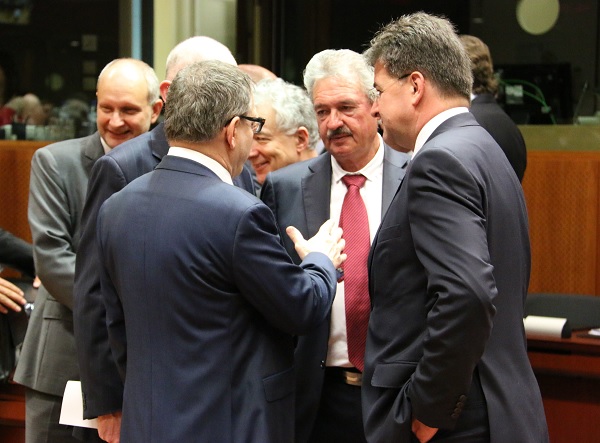
Ahead of the Foreign Affairs Council held in Brussels on Monday, the 28 foreign ministers of the EU reaffirmed the importance attached to the Eastern Partnership with their counterparts from Armenia, Azerbaijan, Belarus, Georgia, Moldova and Ukraine.
The ministers present emphasised their shared vision of this partnership which provides the framework for further developing cooperation with partner countries through priorities such as good governance, mobility, trade and transport and energy. The implementation of the Association Agreements with Ukraine, Moldova and Georgia and the development of customised relations with Armenia, Azerbaijan and Belarus were also discussed.
The Foreign Affairs Council examined the regional strategy of the EU regarding Syria and Iraq and the threat posed by Daech. The strategy, adopted on 16 March 2015, aims to help restor peace and security in the two Middle Eastern countries.
The ministers then held an exchange of views on the external aspects of migration.
Over lunch, the High Representative of the EU for Foreign Affairs and Security Policy, Federica Mogherini, briefed ministers on the progress in the EU's overall strategy, which aims to guide the actions of the European Union in the world in the years to come.
Speaking at a press conference later that day, the High Representative called the Foreign Affairs Council a "very good, intense meeting" and, speaking in the light of the news that a series of suicide bombings had killed an estimated 78 people on Syria's Mediterranean coast on Monday, pledged: "The EU will play an even greater role in trying to facilitate the start of the political transition and the political talks in Geneva".
Photo by MAEE (L-R): Lubomir Zaoralek, Foreign Minister of the Czech Republic; Jean Asselborn, Minister of Foreign and European Affairs; Miroslav Lajčák, Minister of Foreign Affairs of the Slovak Republic








